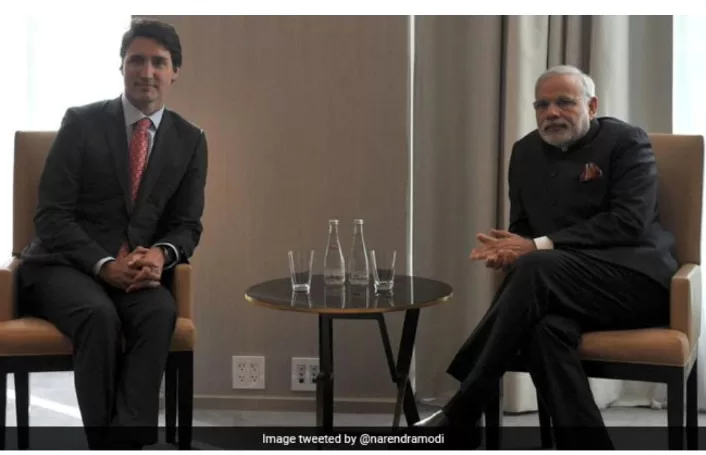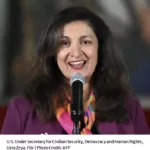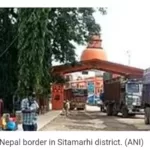Washington, D.C. – In a striking declaration that underscores the evolving dynamics of international relations, former Pentagon official Michael Rubin posited that in the hypothetical scenario of the United States having to choose between India and Canada, it would unequivocally opt for India. Rubin emphasized that the U.S.-India relationship carries an unparalleled strategic importance that supersedes its ties with Canada.
Rubin pointedly observed that India’s strategic significance far surpasses that of Canada and contended that any confrontation initiated by Ottawa against New Delhi would be akin to “an ant picking up a fight against an elephant.”
The former Pentagon official, alluding to the dwindling approval ratings of Canadian Prime Minister Justin Trudeau, suggested that Trudeau’s tenure might be short-lived. He postulated that once Trudeau departs from office, the United States can engage in the process of rebuilding the bilateral relationship.
Rubin’s remarks were made in the context of recent allegations made by Justin Trudeau implicating India in the assassination of Khalistani terrorist Hardeep Singh Nijjar. Rubin expressed skepticism regarding Trudeau’s allegations, suggesting that the Canadian leader had presented unsubstantiated claims. He urged Trudeau to clarify his position, either by providing evidence to support his allegations or explaining why his government had harbored a suspected terrorist.
Hardeep Singh Nijjar, a designated terrorist in India, was fatally shot outside a Gurdwara in Canada’s Surrey, British Columbia, on June 18.
Rubin surmised that the United States, while reluctant to be drawn into a diplomatic tug-of-war between two friends, would ultimately prioritize its relationship with India due to Nijjar’s terrorist background and India’s paramount importance on the global stage.
The geopolitical analyst also acknowledged the complexity of intelligence assessments, drawing parallels to past situations such as the Iraq War, where intelligence was not always clear-cut. Nevertheless, Rubin emphasized Nijjar’s involvement in multiple attacks and maintained that his actions could not be dismissed lightly.
In response to inquiries about potential U.S. intervention in the matter, Rubin contended that Canada faced a greater risk than India. He cautioned that if Canada persisted in provoking India, it would be akin to an ant provoking an elephant, given India’s stature as the world’s largest democracy and its strategic significance in light of growing concerns in the Indian Ocean basin and the Pacific region.
The diplomatic dispute between India and Canada escalated following Trudeau’s allegations regarding Nijjar’s death. This escalation led to the expulsion of senior diplomats from both countries as a tit-for-tat response.
It is worth noting that India vehemently denied Trudeau’s allegations, dismissing them as “absurd” and “motivated.” The Canadian Prime Minister has not presented any concrete evidence to substantiate his claims, despite persistent queries.
Furthermore, Rubin chastised Trudeau’s characterization of Nijjar as a human rights issue, asserting that Nijjar was far from an appropriate symbol for human rights advocacy. He cited Nijjar’s alleged involvement in the assassination of a rival Sikh leader and his participation in multiple attacks as evidence of his violent background.
Michael Rubin, a fellow at the American Enterprise Institute, specializing in Iran, Turkey, and South Asia, offered a critical perspective on Trudeau’s actions, suggesting they were politically motivated and short-sighted. He emphasized the importance of long-term relationships, cautioning against jeopardizing the bond with the world’s largest democracy for short-term political convenience.
By ANI







